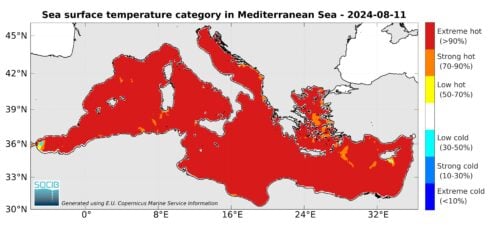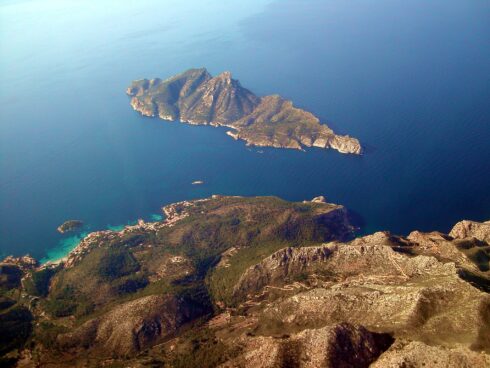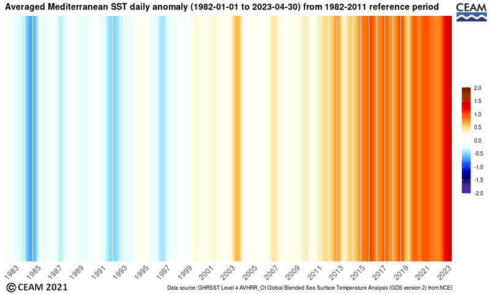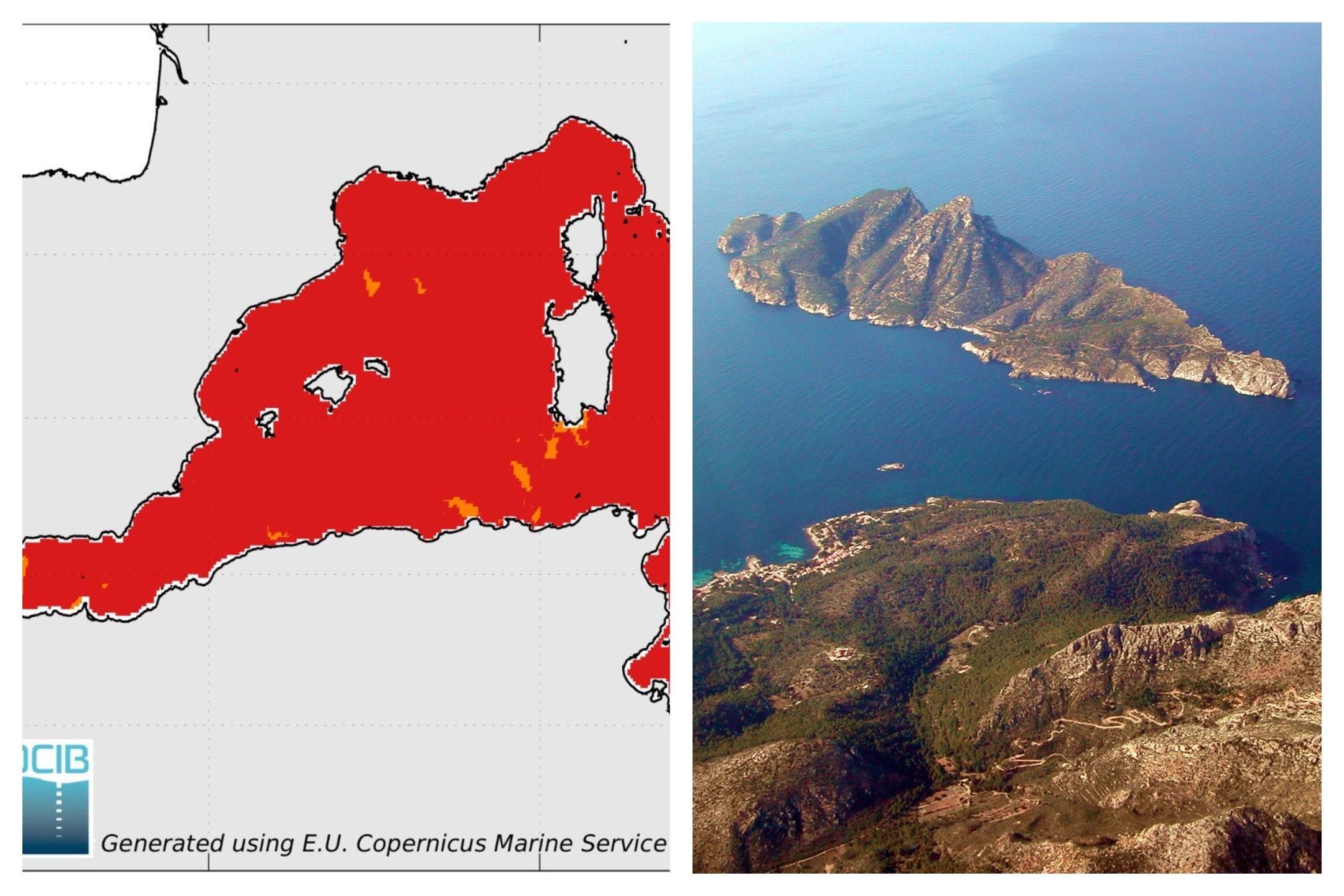THE Mediterranean Sea sent its temperature records tumbling yesterday as an intense heat wave grips the region.
Spain’s Mediterranean waters hit a scorching 31.87C at the Dragonera buoy off the west coast of Mallorca, beating the previous record of 31.36C set in August 2022.
Meanwhile, the Mediterranean Sea set a new average surface temperature record of 28.15C on Saturday, August 10.
“A very warm sea brings more humidity,” said Aemet, the Spanish meteorological agency.

“The stifling heat can reduce comfort and can contribute to more intense rainfall if the atmospheric conditions are suitable.”
It is the highest temperature ever recorded for the Mediterranean since data collection began in 1982, according to the Mediterranean Environmental Studies Center (CEAM).
In recent weeks, temperatures across the French and Italian coasts have surged by as much as 5C above the seasonal norm.

The sea heating in the Mediterranean is occurring 20% faster than the global average of other seas and oceans, while 18 of the 20 highest values observed since 1982 have been recorded between 2023 and 2024, according to CEAM.
These exceptional water temperatures are liable to create atmospheric conditions which could give rise to previously unseasonable storms more akin to what is found in the Caribbean.
READ MORE: Red weather alert in Spain: Experts warn of serious risk to life due to extreme heat in these areas

Experts warn that these extreme temperatures could signal bad news for marine ecosystems and coastal communities.
The rapid warming of the Mediterranean is leading to a process known as ‘tropicalization’, which could result in the loss of biodiversity and the see the spread of harmful algae and seaweed blooms.
Furthermore, these high sea temperatures can intensify extreme weather events such as heatwaves, droughts, and heavy rainfall.
Experts have spoken of dozens of coral species being subject to a ‘mass mortality event’ brought about by the rise in sea levels.








